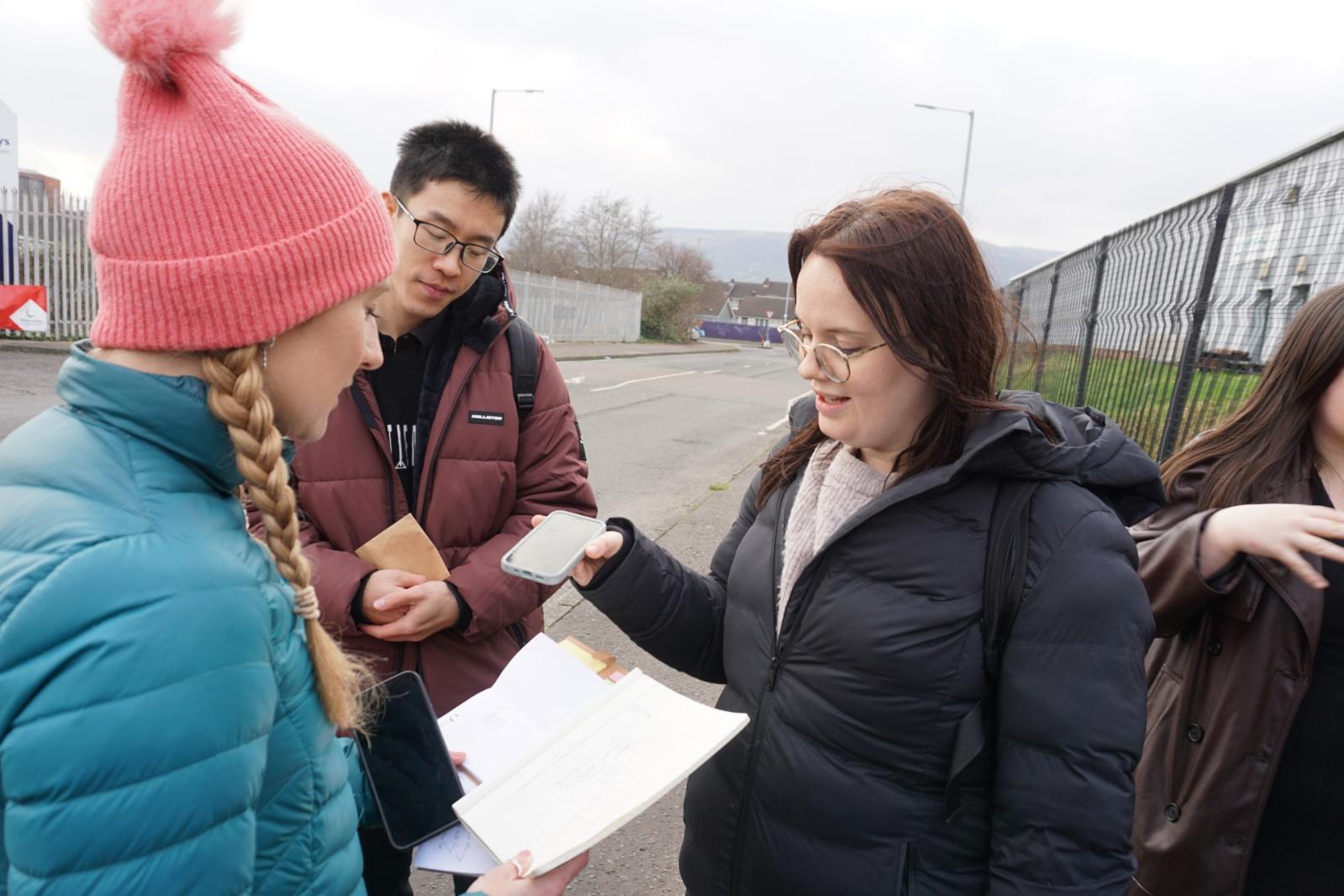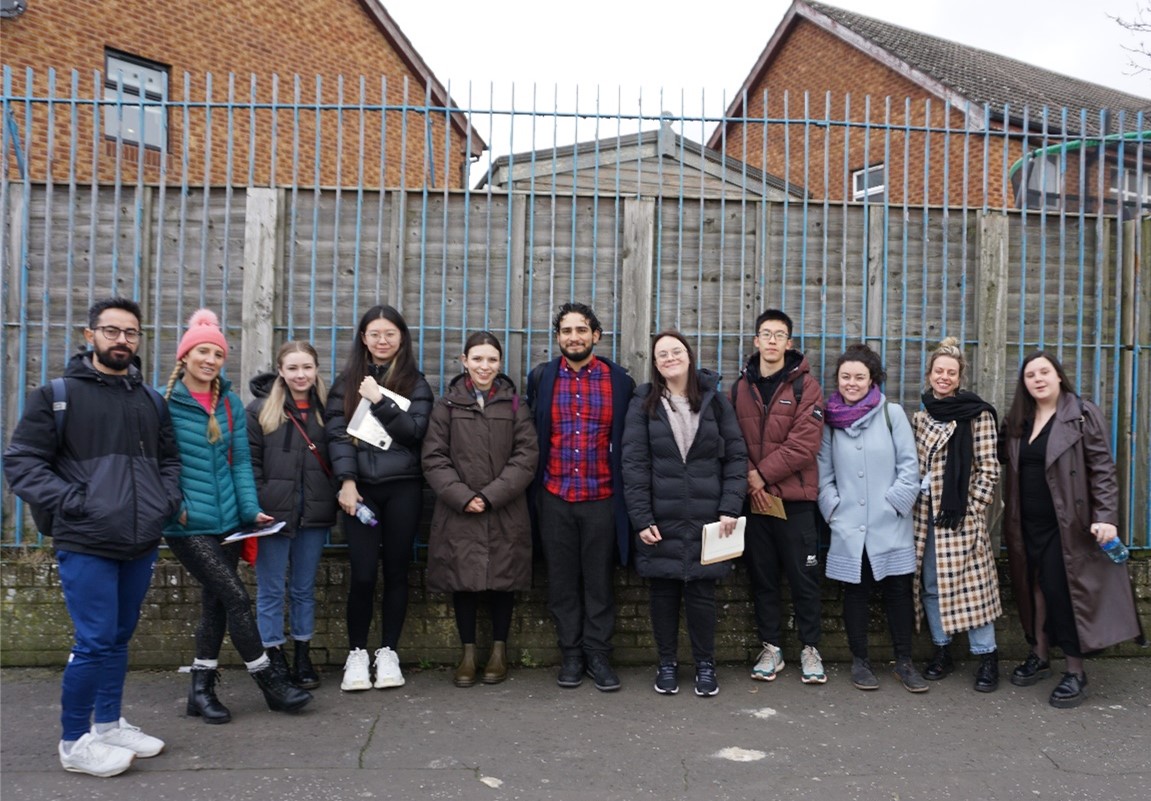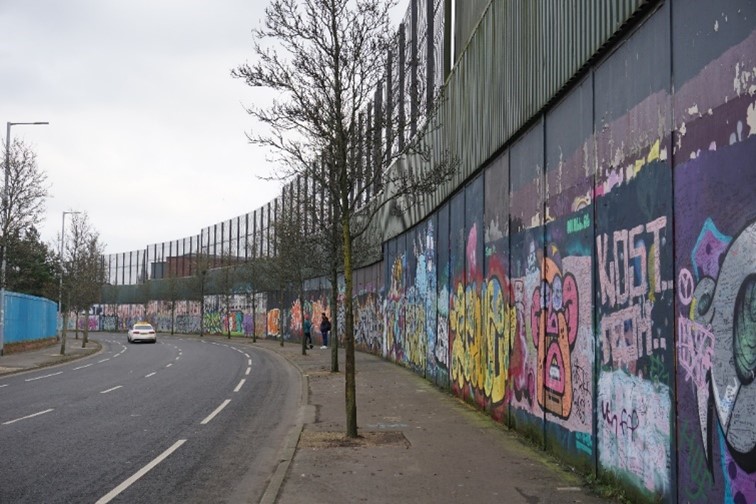Playful Ethnography Belfast

The Playful Anthropology Workshop for MA students in Anthropology at QUB was embedded in the module Advanced Anthropological Methods, convened by Maruška Svašek. The course explores a variety of anthropological methods and ethical issues involved in anthropological research, and encourages students to experiment within and beyond the parameters of standard methodology. The course consists of 10 weekly two-hour seminars:
- Sound, Silence and Movement in the Field
- Walking, Talking and Visual Methods
- Research as (Online) Affective Practice
- Playful Ethnography Workshop
- Evocative Writing and the Senses
- Quantitative Methods
- Research Ethics
- Playful Ethnography Online Symposium with the University of Delhi and the University of Allahabad
- Coding and Interpreting Interview Materials
- Reaching Audiences through Exhibitions and Performance
The workshop was a collaboration with the University of Delhi and the University of Allahabad, where postgraduate students played the same game in quite different urban environments. The students met to discuss and compare findings during an online symposium, where they presented Powerpoint presentations and showed the films they had produced.

Participating MA Students in Belfast: Arturo Eduardo Zacarias Aldaco, Alice Boyle, Niamh Connery, Anna Hollis, Kadence Hunt, Zihao Li, Muhua Liu, Rebecca Rice, Janette Stuart
Participating Visiting PhD student in Belfast: Selçuk Gündüz, University of Hacettepe, Ankara, Turkey.
Convenor: Maruška Svašek
Procedure: The students met on 13 February 2023 on the corner of Cupar Way and Lanark Way, (https://goo.gl/maps/K2p8jy2euGeZ6CuP9). The module convenor chose this starting point as it is the location of one end of one of Belfast many ‘peace walls’, which separate majority Catholic and majority protestant neighbourhoods. These walls are visible material traces of both the violent history of the region and the ongoing politics of reconciliation.
